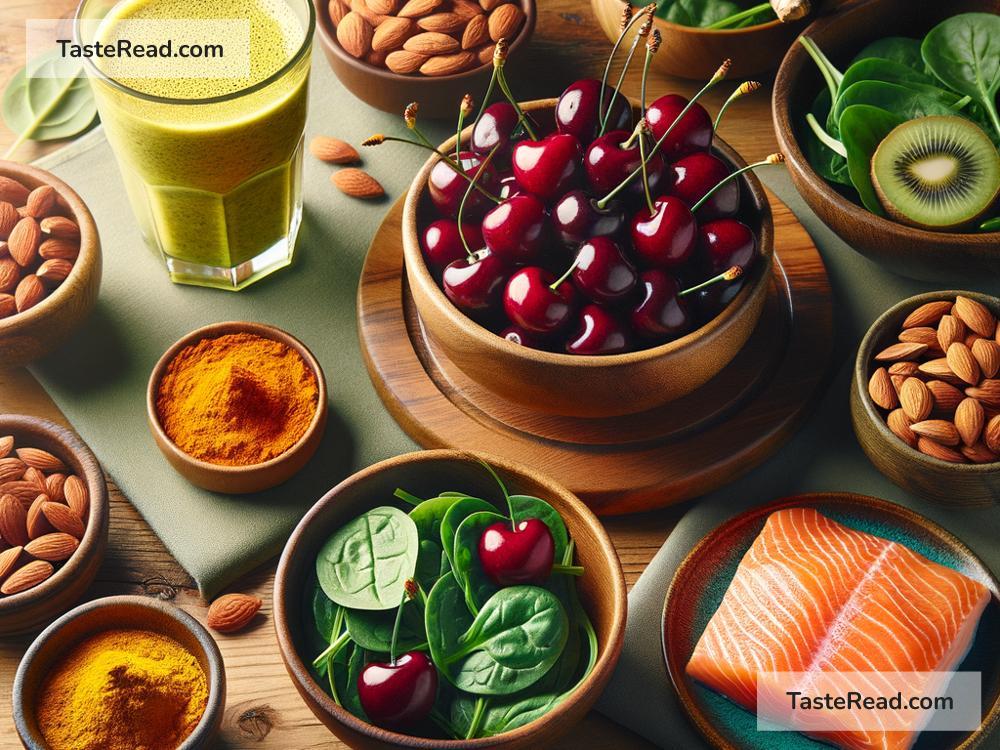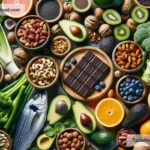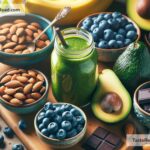Foods That Can Help Reduce Muscle Soreness
If you’ve ever experienced muscle soreness after exercising, you’re not alone. Many people feel achy and stiff after a challenging workout or even everyday activities like moving furniture or gardening. Muscle soreness, known as DOMS (Delayed Onset Muscle Soreness), often occurs when you engage muscles in activities they’re not used to. But don’t worry—what you eat can play a big role in helping your body recover and reduce soreness.
In this blog, we’ll discuss foods that can help ease muscle soreness and support recovery. These foods contain nutrients that fight inflammation, repair muscle tissue, and keep your body happy and healthy.
1. Bananas – Nature’s Energy Booster
Bananas are packed with potassium, a mineral that helps prevent muscle cramps and soreness. When you exercise, your body loses both water and electrolytes like potassium through sweat. Low potassium levels can lead to cramping, which makes muscle soreness even worse. Eating a banana can restore your potassium levels and give your body the energy it needs to repair muscles.
Plus, bananas are an easy snack to grab before or after a workout. They’re sweet, filling, and travel well—making them perfect for gym bags!
2. Salmon – A Protein Powerhouse
Salmon is rich in protein and omega-3 fatty acids, both of which help repair and strengthen muscle tissue. After strenuous activity, your muscles develop small tears. Protein gives your body the building blocks to repair and rebuild these muscles, while omega-3s fight inflammation, helping reduce soreness.
If you’re not a fan of salmon, other fatty fish like mackerel or sardines also have similar benefits. Aim to include fish in your diet a few times a week for the best results.
3. Spinach – The Super Green
Spinach is one of the healthiest greens you can eat. It’s loaded with magnesium, which plays a role in relaxing muscles and preventing cramps. It also contains vitamin E, which helps reduce inflammation and repair muscle tissue after exercise.
Adding spinach to your post-workout meals is simple. Toss it into a smoothie, mix it into scrambled eggs, or use it as the base for a salad. Spinach is versatile and delicious!
4. Ginger – The Spicy Healer
Ginger isn’t just for tea; it has powerful anti-inflammatory properties that can lessen muscle pain and soreness. Studies have shown that consuming ginger after exercise may reduce the discomfort associated with DOMS.
You can add fresh ginger to soups, stir-fry dishes, or smoothies. If you prefer something simpler, a cup of ginger tea can work wonders for your sore muscles.
5. Tart Cherries – A Sweet Relief
Tart cherries or tart cherry juice are a fantastic option for muscle recovery. Cherries contain antioxidants and anti-inflammatory compounds that help reduce the swelling and tenderness associated with muscle soreness. Some athletes even swear by drinking tart cherry juice regularly to prevent soreness.
You can enjoy tart cherries fresh, dried, or as juice. Look for unsweetened versions if you’re choosing the juice—extra sugar won’t help you recover faster.
6. Eggs – Small But Mighty
Eggs are one of the best sources of high-quality protein. They also contain important amino acids that your body needs to repair muscle tissue after a workout.
Plus, eggs are quick and easy to cook. Scramble them for breakfast, boil them for a portable snack, or include them in recipes to make post-workout meals healthier and more filling.
7. Yogurt – A Creamy Recovery Aid
Yogurt, especially Greek yogurt, is a great food for muscle recovery. It’s packed with protein, which helps repair muscles, and calcium, which supports muscle function. Additionally, yogurt contains probiotics that aid digestion, helping your body absorb nutrients more effectively.
Pair yogurt with fruits like berries or bananas to boost its nutritional value. It’s a delicious and convenient snack after a workout.
8. Nuts and Seeds – Tiny Nutrient Powerhouses
Nuts and seeds like almonds, walnuts, chia seeds, and flaxseeds are full of healthy fats, protein, and antioxidants. These nutrients are crucial for reducing inflammation and repairing muscle tissue.
Snack on a handful of nuts or add seeds to your smoothies, oatmeal, or yogurt for a nutritional boost. They’re easy to store and can be a great option to keep you energized throughout the day.
9. Sweet Potatoes – Carbs for Recovery
Carbohydrates are important for muscle recovery because they replenish glycogen stores, which get depleted during exercise. Sweet potatoes are a great carb choice because they’re rich in vitamins and minerals like vitamin C and beta-carotene, which help fight inflammation and repair tissues.
Bake or mash sweet potatoes for a healthy side dish, or cut them into wedges and roast them for a delicious snack.
10. Water – Your Number One Ally
While not technically a “food,” water is just as important as anything else on this list. Staying hydrated helps your muscles recover faster and prevents cramps. After a workout, drink plenty of water to replace fluids lost through sweat.
For extra recovery benefits, consider infusing your water with lemon or cucumber for a refreshing touch.
Conclusion
Muscle soreness can feel uncomfortable, but making smart food choices can help your body recover more quickly. Including foods like bananas, salmon, ginger, spinach, and nuts in your diet will give your muscles the nutrients they need to heal and grow stronger. Don’t forget to stay hydrated and get enough rest—it’s all part of the recovery process.
So, the next time your muscles feel sore, skip the painkillers and head to the kitchen. With the right foods, you’ll be back to feeling your best in no time!


